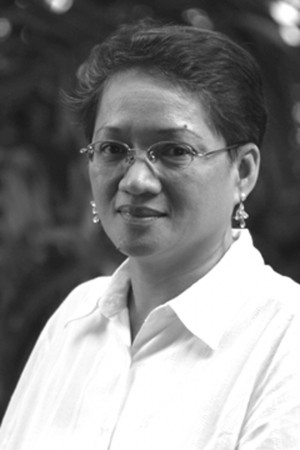Institutionalize Drug Rehab and Recovery

Malou Apalisok
This maybe unknown to Pres. Rodrigo Duterte who is currently fending off an inquiry by the International Criminal Court over the deaths of thousands of drug addicts and offenders relative to the bloody crusade against illegal drugs. For PRRD’s info, the battle has surprisingly taken a positive turn — thanks to the initiative of an international group and Malaysia’s academe that rolled out the 1st International Certified Addiction Recovery Specialists ICARS under the auspices of the Colombo Plan. The important gathering took place in an uptown hotel in Cebu City from February 2–13, 2018.
The Colombo Plan was conceived as a cooperative venture for the economic and social advancement of the peoples of South and Southeast Asia.
Established in 1950 in Colombo, Ceylon (now Sri Lanka) the original founders were prominent persons representing Australia, United Kingdom, New Zealand, Pakistan as well as Asia Pacific leaders, who to this day are revered in the region like Jawaharlal Nehru, India’s first prime minister and J.R. Jayewardeni, a central figure in Sri Lanka politics.
Currently, the Colombo Plan has 27 member countries including the United States, members of the Asean and the South Asia Association for Regional Cooperation SAARC. The Philippines became a member in 1954.
Human resource development as a tool to address social and economic issues under the sphere of cooperation among member countries describes the program content of the Colombo Plan. Member countries contribute to the administrative costs of running the Secretariat in Colombo, Sri Lanka.
They also chip in for the training programs which are also funded by the 14-nation Organization of Petroleum Exporting Countries OPEC.
Over the years, the Colombo Plan has looked beyond its traditional programs in the field of education, private sector development and public administration and environment. Pressured by the global drug problem in 1973, Colombo Plan reached out to member countries “in initiating the process of policy evolution, finding appropriate solutions on a bilateral and/or multi-lateral basis and in encouraging national efforts among member countries towards drug demand reduction.”
The commitment is embodied in Colombo Plan’s Drug Advisory Program DAP through 6 focus areas: prevention, youth, treatment and rehabilitation, special services for children, supply reduction and law enforcement, curriculum development and credentialing, expert advisory and publications. DAP is now acknowledged as the biggest stakeholder in drug demand reduction in Asia Pacific.
* * *
Tuesday last week I had the privilege of attending the news conference called by the newly organized Association of International Certified Addiction Recovery Specialists (AICARS). This was at the end of the 10-day intensive and rigorous academic program attended by some 24 participants from the Philippines and 2 from Singapore. The ICARS program would be equivalent to one semester in a college or university setting but thanks to Malaysia’s Asia Metropolitan University and its Emeritus Addiction Studies, the program was compressed into 80 hours spread over a period of 10 successive days. The course is quite pricey.
The news conference headlined Mr. Bian How Tay, Program Director of Emeritus Addiction Studies who facilitated the 10-day course together with Ms. Malyn Cristobal, a DRR professional with extensive training and exposure under the Colombo Plan Drug Advisory Program. Mr. How Tay is the former director of Colombo Plan International Center for Credentialing and Education of Addiction Professionals.
The first ICARS program conducted through Malaysia’s Asia Metropolitan University and Emeritus Addiction Studies was significant because about half of the attendees were recovering drug addicts. The rest were DRR professionals and aspiring DRR coaches.
In the open forum that followed, Mr. How Tay emphasized that every country in the world has a serious drug problem and the PH is no exception. In fact, our problem would be minuscule compared to Afghanistan, the world’s biggest opium producer with 93% of its supply going to the manufacture and illicit trade of heroin. Law enforcement is key to solving the problem as it confronts the supply that feeds on the demand of drug users, according to Mr. How Tay.
Focusing on the brutality of the anti-drug war is a valid issue, but we also need to pay attention to the initiatives of private groups who took it upon themselves to come up with organic programs to help recover the lives of drug dependents. They need all our support.
Lay leader Fe Barino, executive director of the Surrender to God drug rehab and recovery program and who also took the course, asked government to institutionalize if not subsidize the education and credentialing of DRR professionals because community-based programs like SuGod rely only on donations and volunteer work. I urge Congress to consider this measure to complement President Duterte’s anti-drug crusade.
Big thanks to Emeritus Addiction Studies and its PH partner, Malyn Cristobal for bringing the ICARS program to Cebu. The special education, training and skills coupled with the professional’s clear understanding of the cultural terrain and society’s all out support would spell much for the recovery and return to mainstream society of drug addicts and offenders.
Disclaimer: The comments uploaded on this site do not necessarily represent or reflect the views of management and owner of Cebudailynews. We reserve the right to exclude comments that we deem to be inconsistent with our editorial standards.
